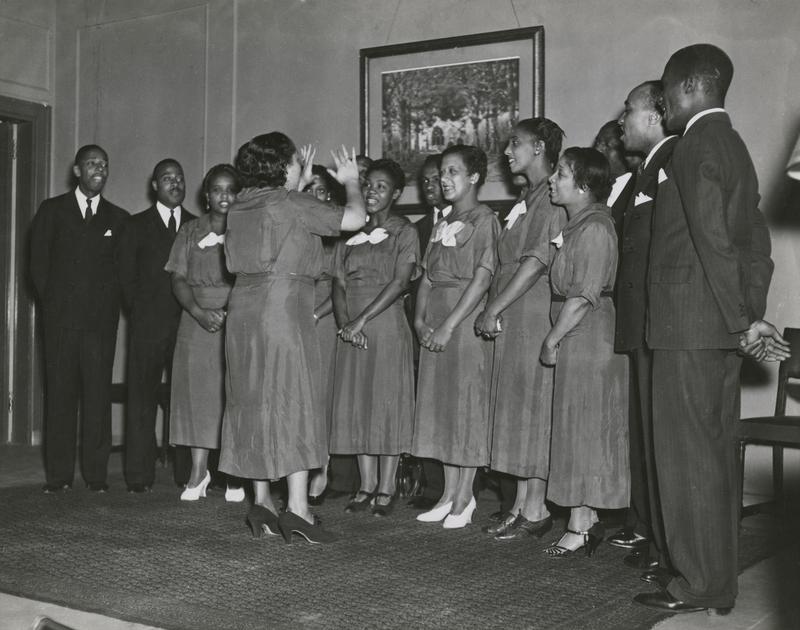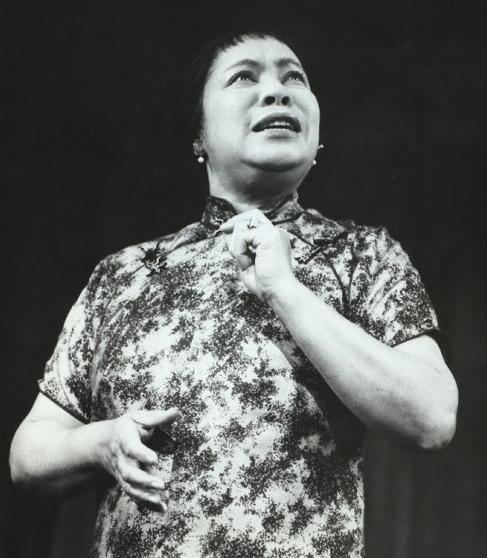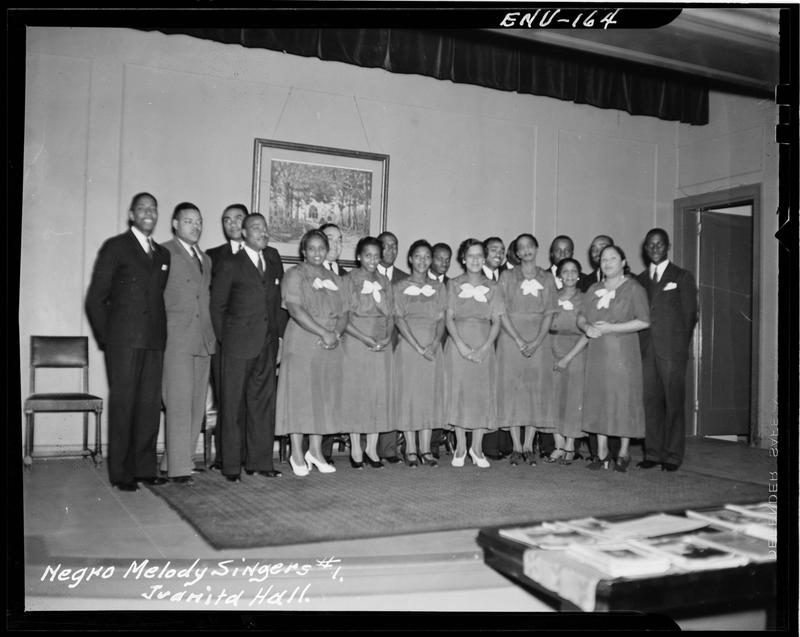'Way Over in Beulah Land' and All Over the Airwaves

The financial crash of 1929 had many unintended consequences, perhaps none more so than the subsequent efflorescence of the arts under the auspices of various Works Project Administration programs. In these recordings from 1937 and 1939, the Juanita Hall Choir and Negro Melody Singers, unemployed people on the "relief rolls," present rousing programs of spirituals under the direction of soon to be famous singer and actress Juanita Hall. Neither Hall nor the choir members ever speak. In these recordings, the announcer gingerly mediates the ground between the presumably white listeners and this drastically "other" music. Introducing "Free At Last" in this recording of the Juanita Hall Choir, he explains that the lyric is not just about slavery, that it has "a two-fold meaning, as it also refers to the emancipation of our souls from sin." The arrangements (by Hall) are complex and the performances gleamingly polished. This is not the almost anthropological type of on-site recording that would become popular in the following decades, but an attempt to "mainstream" a vibrant but still ghettoized art form.
In the middle of each program is a plug for the WPA, the announcer reminding the audience that people on relief "want permanent jobs just as sincerely as the man or woman who has one." What strikes the listener now simply as extremely moving and technically accomplished music seems to have had a far more charged import at the time. Presenting black spirituals on the radio, subsidized by the government, as wholesome fare for the community at large was itself a political act. Indeed in his book about the history of the Federal Music Project All of this Music Belongs to the Nation, Kenneth J. Bindas notes:
In NYC the audition board took great pains to point out that it had lowered the audition standards to allow the Juanita Hall Melody Singers to perform.
Yet Hall and her singers performed regularly on WNYC. Thus, even such a tragic event as the Depression did allow new voices to be heard…and new emotions to be experienced by those willing to listen.
Juanita Hall (1901-1968) was an extraordinarily talented woman at a time when opportunities for black performers were limited. Encyclopedia.com relates how:
At age 14 Hall began teaching singing at Lincoln House in East Orange, New Jersey. … She moved to New York City and studied orchestration, harmony, theory, and voice at the Juilliard School of Music. She also took private lessons in voice and acting. Hall did choral work and spent many years appearing in minor stage roles before achieving stardom.
That stardom came with her being cast as Bloody Mary in the musical South Pacific. Masterworksbroadway.com recalls how:
“Come away, come away,” Bloody Mary sings in one of the most mysterious, exotic, and seductive songs in musical theater – “Bali Ha’i,” from South Pacific. The part of Bloody Mary will forever be linked with Juanita Hall, who created the role on stage in 1949. The show won the Pulitzer Prize for Drama, as well as Tony Awards in numerous categories, including those for Best Musical, Best Original Score, and Libretto. The leads, Ezio Pinza and Mary Martin, both won Tonys – as did Hall, for Best Featured Actress in a Musical."
Hall went on to perform in several other Broadway plays including Flower Drum Song and House of Flowers, as well as appearing on film, in nightclubs, and making records. In her entry in the reference work Notable Black Women, the composer Richard Rodgers wrote, "I think everyone who had anything to do with her loved her. As an actress, she was…a joy to work with."
Hear more WPA recordings directed by Juanita Hall:
Negro Melody Singers, Program No. 13
Negro Melody Singers, Program No. 4
Negro Melody Singers, Program No. 17
Negro Melody Singers, Program No. 16
The groups directed by Juanita Hall were not the only African American singers commissioned by the WPA.
Listen to a Federal Music Project Mixtape: Black Voices on the Air.


